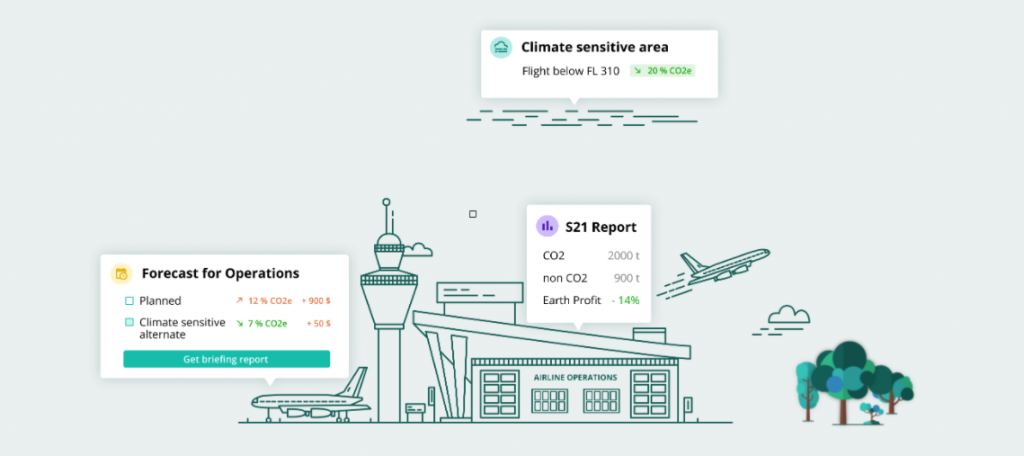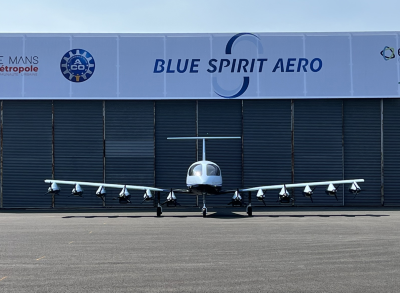Thales Flights Footprint Estimator: a concrete tool to reduce the environmental impact of aviation

The potential impact of flights is far more complex than simple fuel burn as it has to take into account both CO2 and non-CO2 emissions. A first non-CO2 impact is the creation of contrails, or condensation trails. Those photogenic linear clouds that stretch out in the sky behind aircraft are artificial cirri appearing as the aircraft passes through areas that are particularly conducive to their formation – cold and humid air. Their greenhouse effect lasts for a number of hours and is particularly potent at night. Studies are also conducted on NOX emissions that can generate antagonistic effects, whether atmospheric warming (ozone creation) or cooling (methane depletion) depending on flight level, area of emission, and weather conditions.
To convert all the research results available into a concrete and actionable tool, Thales has initiated the development of the Flights Footprint Estimator application. Currently in its customer trial phase, this application is based on state-of-the-art models and academic research on the effects of CO2 and non-CO2 emissions and provides a state-of-the-art view of the environmental impact of aircraft trajectories. It can be used both to better understand the climate impact of the operations and, in a proactive mode, to mitigate the risks of climate impact of the flight.
Four actionable steps are covered: understand, evaluate, simulate and act, to enable Airlines to get a full and comprehensive picture with actionable optimization levers of the climate impact of their flight operations.
The information, made available to airlines, pilots and air traffic control, will contribute to better understanding operations in order to support the transition to more virtuous and environmentally-friendly flights. (Discover the Flights Footprint application by clicking here.)
The Flights Footprint Estimator provides a means of putting climate impact management at the heart of decisions and operations, as well as accelerating the emergence of a shared performance goal between airlines and Air Traffic Control, contributing to generalizing collaborative, climate-aware decision-making.
Thales, a committed contributor to the reduced environmental impact of aviation
Subsequent to the ongoing customer trial phase, the Flights Footprint Estimator will be widely available on the market from the second quarter of 2022 onwards.
This new application is one of the flagship tools that form Thales’s global contribution to reducing the impact of aviation. The Group is fully committed to leveraging its unique transversal expertise to deliver operational and short-term solutions for the benefit of global climate objectives.
As a world leader in flight management systems (FMS) and air traffic management (ATM), the Group is also developing flight path optimization solutions that would reduce aircraft CO2 emissions by up to 10% in the near-term future.
- Flights Footprint Estimator application: flights-footprint.com
- Click here to read more about this subject in the LinkedIn opinion piece recently published by Yannick Assouad, EVP Avionics at Thales
- Click here to read more about the Thales Group’s commitments to environmental and social issues
- Click here to read more about how Thales welcomed the European Aviation Summit declaration of Toulouse on Future sustainability and decarbonisation of aviation alongside European institutions




